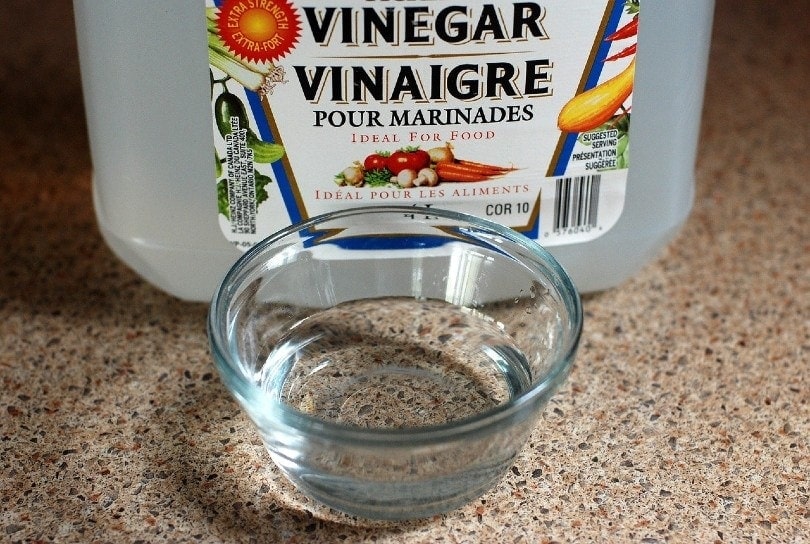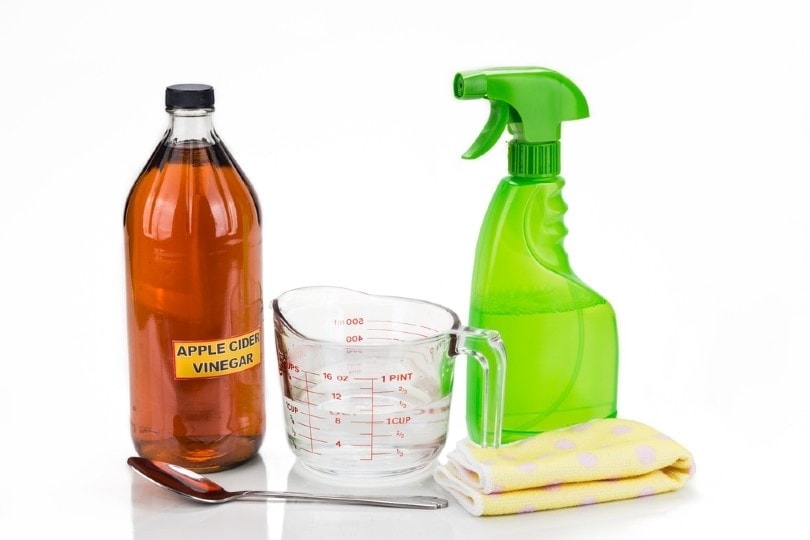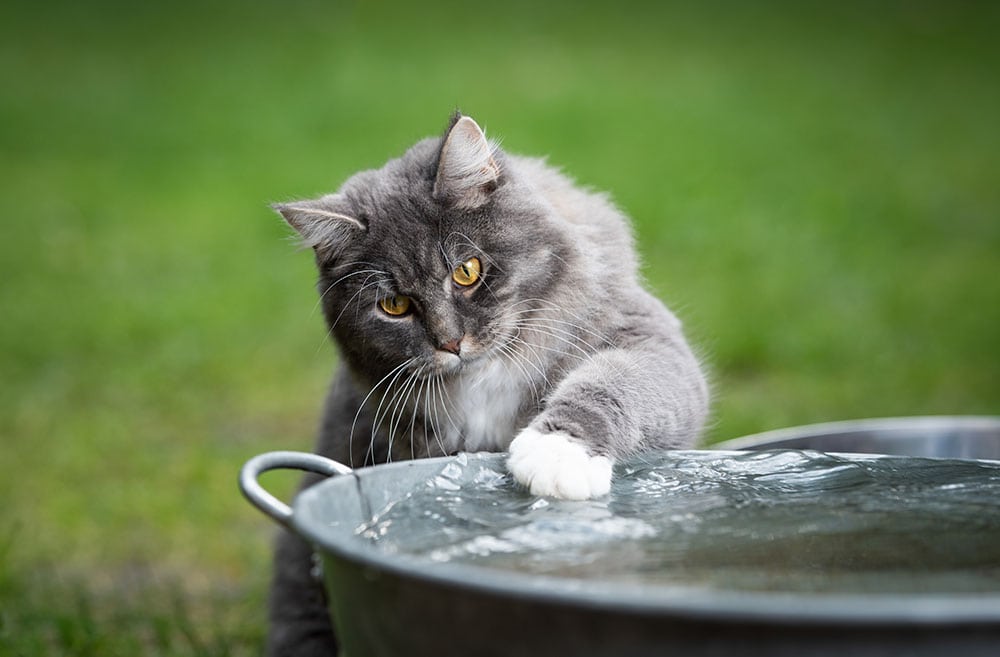Can Cats Drink Vinegar? Vet-Reviewed Health Facts
Updated on

If you’re wondering whether vinegar is safe for cats, the short answer is that it’s not toxic for cats, so while you shouldn’t let your cat drink straight vinegar, it is safe to use around the house as a cleaner or for other purposes. The acidic aroma of vinegar crinkles your cat’s nose more than it does a human nose due to your cat’s strong sense of smell. So, it’s highly unlikely that your cat would want to drink vinegar in the first place.
But if you have a curious cat that decides to taste your freshly mopped vinegar floor or one who grooms themselves after you’ve applied vinegar to their fur as pest control, there’s no need to worry. The small amount of vinegar that your cat will consume won’t harm them. They’re more likely to be turned off by the acidic substance than to drink too much of it.
Does the Smell of Vinegar Bother Cats?
While the smell of vinegar doesn’t cause any physical issues for cats, most of them simply don’t like it. For this reason, many people use vinegar as a natural, non-toxic deterrent in areas that you’d like to keep your cats out of. Cats are less likely to be offended by the smell of vinegar when it is diluted, as it would be for cleaning.

Safe Ways to Use Vinegar for Cats
- Clean deposits out of pet bowls and fountains. Mineral deposits build up in pet bowls and water fountains if you have hard water. Cleaning them with vinegar is a safe way to remove the deposits without worrying about harming your cat.
- Remove litter box odor. The best way to avoid litter box odors is to clean your litter box regularly. Sometimes, though, even with regular cleaning, stinky messes happen, and odors can seep into the box itself over time. For a litter box deep cleaning, pour vinegar in the bottom and let it sit overnight (you’ll need a second box for your cat in the meantime). In the morning, pour out the vinegar, and the odor will be completely removed. To recycle the used vinegar, pouring it on your lawn will allow it to do double-duty as a natural weed killer.
Final Thoughts
Vinegar is non-toxic to cats, and there are several ways that you can use it to promote good health in your pet. Cats shouldn’t drink vinegar as a rule, but small amounts won’t hurt them. Most cats are deterred by the smell of vinegar, anyway, and won’t drink it willingly. It is effective in keeping cats out of certain areas of your house, as they don’t like the strong smell that vinegar emits.
Featured Image Credit: NatureFriend, Pixabay












